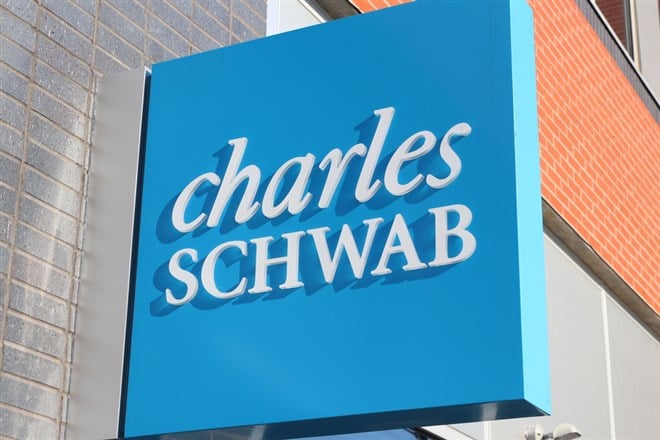
Having rallied as much as 45% since last summer, the last thing investors of brokerage firm Charles Schwab Corporation (NYSE: SCHW) would have expected was a plunge of the same magnitude in just three sessions. However, that’s what’s happened in recent days since the collapse of SVB last Friday has caused investors to flee from any finance related stock.
Last Wednesday, shares closed at just over $76 and were fairly flat. By the end of Thursday, they were at $66, Friday they were at $58, while within a few hours of Monday’s open they were at $45. For context, it’s around this level that they spend much of the time between 2017 and 2020 trading at.
So What Happened?
The stunning weakness, as seen in the likes of First Republic Bank (NYSE: FRC) and other regional banks that look a lot more like SVB than Schwab does was understandable. But what made investors head for the exit in a company that had been outperforming the S&P 500 index every year since 2018? It seems to have stemmed from comments from the company’s CFO, Peter Crawford, in January.
As part of the company’s 2023 Winter Business Update, Crawford had commented: “on his expectations for cash sorting, which occurs when clients move their cash into higher-paying money market funds from lower-yielding bank deposits.” He outlined his expectations for cash sorting to slow down throughout 2023, while warning that interest-earning assets could face a double digit drop as rates rise.
Analysts read this as a warning about the impact it would have on Schwab’s balance sheet and there was some minor weakness in the stock at the time. However, the sudden failure of SVB due to poorly performing interest rate assets last week has caused many investors to question just how exposed other firms like Schwab are.
Hence the biggest drop in the stock’s history through Monday morning. Since then though, things have started to turn and it’s here that we see a massive opportunity opening up. Having fallen a full 40% from last week’s high into Monday, shares have since staged a remarkable comeback and were up more than 30% by Wednesday’s close. They’re still another 30% rally away from undoing all the damage, and several big voices on Wall Street are calling out the likelihood of this in the near term.
Morgan Stanley were one of the first to call the selloff overdone, with analyst Michael Cyprys reiterating his Overweight rating during Friday’s bloodbath. In a note to clients, he wrote that the ongoing slump in shares was "a knee-jerk reaction that compounds on long-simmering concerns about cash sorting”. However, his and his team view Schwab’s drop as “a compelling entry point for a high quality franchise that should be able to better navigate liquidity risks than the market prices in, given significant financial strength/ flexibility, liquidity profile and significant earnings/capital generation".
Getting Involved
The folks over at Citi followed suit with a full upgrade from Neutral to Buy on Monday, with analyst Christopher Allen writing that “we do not see a material risk to deposits leaving SCHW given the composition of its deposit base and customer protections." And in a sign of just how big an opening this drop might have given investors, billionaire Ron Baron announced that he’d loaded up on the stock during Monday’s session. All the signs point towards the drop in Schwab specifically being a complete overreaction that will soon be undone.
While of course there could be surprise unknowns lurking around the corner just like there were for SVB, Charles Schwab is not a regional bank that’s focused on a niche type of customer. This is a stock whose revenue increased every year since at least 2013 and whose annual net income is at record highs. As far as safe bets go when it comes to chasing 30% return, it doesn’t get much better than this.






